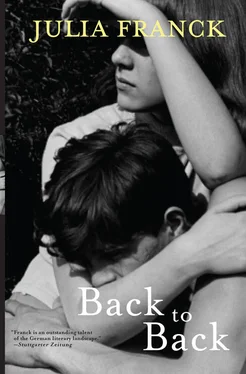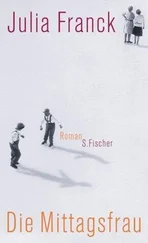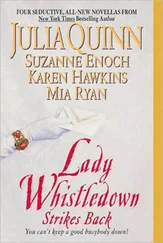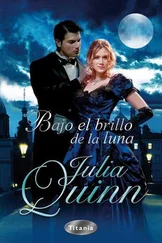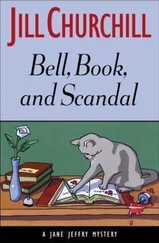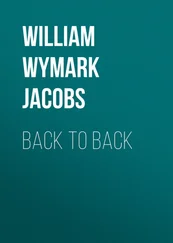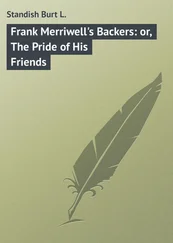Julia Franck - Back to Back
Здесь есть возможность читать онлайн «Julia Franck - Back to Back» весь текст электронной книги совершенно бесплатно (целиком полную версию без сокращений). В некоторых случаях можно слушать аудио, скачать через торрент в формате fb2 и присутствует краткое содержание. Год выпуска: 2013, Издательство: Grove Press, Жанр: Современная проза, на английском языке. Описание произведения, (предисловие) а так же отзывы посетителей доступны на портале библиотеки ЛибКат.
- Название:Back to Back
- Автор:
- Издательство:Grove Press
- Жанр:
- Год:2013
- ISBN:нет данных
- Рейтинг книги:3 / 5. Голосов: 1
-
Избранное:Добавить в избранное
- Отзывы:
-
Ваша оценка:
- 60
- 1
- 2
- 3
- 4
- 5
Back to Back: краткое содержание, описание и аннотация
Предлагаем к чтению аннотацию, описание, краткое содержание или предисловие (зависит от того, что написал сам автор книги «Back to Back»). Если вы не нашли необходимую информацию о книге — напишите в комментариях, мы постараемся отыскать её.
, was an international phenomenon, selling 850,000 copies in Germany alone and being published in thirty-five countries. Her newest work,
echoes the themes of
, telling a moving personal story set against the tragedies of twentieth-century Germany.
Back to Back Heartbreaking and shocking,
is a dark fairytale of East Germany, the story of a single family tragedy that reflects the greater tragedies of totalitarianism.
Back to Back — читать онлайн бесплатно полную книгу (весь текст) целиком
Ниже представлен текст книги, разбитый по страницам. Система сохранения места последней прочитанной страницы, позволяет с удобством читать онлайн бесплатно книгу «Back to Back», без необходимости каждый раз заново искать на чём Вы остановились. Поставьте закладку, и сможете в любой момент перейти на страницу, на которой закончили чтение.
Интервал:
Закладка:
Marie stopped. She put one hand against Thomas’s cheek, and gave her other hand to her daughter, who was now putting out a little arm to her mother. She opened her mouth and took a deep breath, but said nothing. Now the child was holding both arms out to Marie, so Thomas lifted her down from his shoulders and put her into Marie’s arms. The little girl looked curiously back, as if seeing Thomas only now and wondering what this young man looked like, the young man with whom she had spent the afternoon and who had carried her through the wood on his shoulders.
There, said the little girl, pointing to Thomas.
Instead of answering, Marie turned away with tears in her eyes. With the raffia basket over her arm and the child on her hip, she went on in the direction of the tram stop. The child kept her arms outstretched, looking past Marie’s shoulder and back at Thomas, who didn’t know what she wanted him to do.
I’ll go with you part of the way, said Thomas, following them. Wait, Marie, I can go part of the way into the city with you.
Marie hurried on, crossed the road, and Thomas followed her. You tell me, don’t go away, / but what would I have if we parted? He spoke softly to himself, reciting the lines he had written a few weeks ago, when he still thought that only time would show what became of them. Time on its own showed nothing, only the living had to part. I must go now, / you said, / and so it was indeed. / I could not hold you, there / was nothing I could do. / Those are laws not written by our love, / but laws that part us. He caught up with her at the tram. Let me come with you. He touched her arm. She was still wearing his pullover.
In the electric light of the tram a few people sat on their own, reading the newspaper and waiting for the tramcar to leave. Marie put her child down on the step up into the tram, with the raffia basket beside her, and took Thomas’s pullover off over her head. I love you, she whispered as she gave it to him, and got into the tram with her child and the basket. For the answer / is the end / of searching, of the question.
The buzz of the signal burned in Thomas’s ears, the doors closed, and the tram, squealing, began to move. He could just see Marie sitting down with her little girl before the tram went round the curve and disappeared past the trees. He had two days off ahead of him before he could see Marie again at the hospital on Friday.
By night Thomas found himself on the street. He was not wandering aimlessly; it was a compelling attraction against which he was powerless. He could sleep less and less often these days, and when he did sleep it was for only a few hours. He would board the last tram or walk through the wood to the suburban railway. You wept without a reason. / Do you believe in summer days, / or like me, see cold coming — / your face is far away. As if passing through a system of veins he went, never resting, on rails inside the brightly lit carriage into the city, capillaries all going the same way, Frankfurter Allee, Samariterstrasse, the stone of its pavement, Marie. Footsteps by night wear down stone outside the house — and if he did not look down at the pavement, he looked up at the two windows behind one of which he sometimes saw a faint light still on. I fear the mist around us, / do not keep looking round — / the planet on its axis / takes your face far from me.
In spite of the dusty warmth of the summer nights, by three or four in the morning at the latest Thomas was freezing, his hands trembling, and he would sit down beside the gutter diagonally opposite the building, making notes for his poems. His mingled fear and longing to see Marie, or perhaps not to see her, wore him out. The lights upstairs had gone off long ago, the windows were dark. He never heard Marie, which troubled him. Even when one of the windows up there was open, he did not hear her singing a lullaby to the little girl, however quietly, he did not hear her cry out when her husband hit her, he did not hear her speaking or weeping, and he had never heard her laughing. Was she asleep? Was he watching over her sleep there in the gutter? To light the dusty paving, / the way your steps have gone. / To bring warmth to it, / when you return, / I stand here smiling / still, and waiting / still, and I know / that there’s some sense / in it, in waiting, even where / no one has ever been, / even there. / And I am happy. In his trouser pocket, like a pledge, he felt the little beaker in which the white powder was collecting, milligram by milligram. The end is waiting there, / I do not know but do not fear it, / and there is sense in knowing, in believing. / So I go on and feel no weariness. As day began to dawn he would set off, worn out, on the way to Alexanderplatz, from where he sometimes took the first train back to Rahnsdorf, but he usually went straight to his shift at the hospital. I do not look around, for I know well, / deep silence follows, happiness, / and I know you, beloved, loneliness is strange, / and the sin of fear — that I have never known. So in the morning he would get out of the suburban train, the birds in the wood twittered, and coffee cups clattered on springtime tables when he reached the first cobblestones. He did not walk in fear now, but in great peace and certainty; how easily the handle of Käthe’s door opened, how the cold of the dark corridor surrounded him, and here he could rest, and if not sleep then rest without dreams. Days and nights I do not count, / you are with me, and a mighty sun / has risen, I do not doubt it, / and I can feel the freedom that is in me.
Oh, to break free of her, lose sight of her windows, rest his senses, walk away from her! He hardly knew where he could go. Was there a place without Marie? Where did he belong, if not with her? And I go on again / to the railway, to the cold. / I search every night for you, / every night I pass, awake, undreaming.
Once he reached Samariterstrasse in the middle of the night, and all the upstairs windows were brightly lit, voices and music spilled out into the street, seeped into his ears, clung to the dust. Thomas could not be sure whether it was Marie and her husband entertaining guests. He imagined them drinking, saw Marie being made to dance, her husband collecting money from his colleagues as they came out of the bedroom one by one, Often at times / I am afraid. / And when I stand like this, / my legs being made of stone / and so not tiring, / while the city holds me, / dusty as it is, / holds and embraces me / as if jealous of you, / then I’m afraid. / How, tell me how / I can be rid of the dust. When the voices were quieter, the music had been turned down, and the light went off upstairs, he saw a shadow that might be her husband’s at the window. A little later Thomas saw three drunks coming out of the house. He wanted to shout, to leap out, but he only ran up the street, and having reached the end of it, breathless, he slowed down, trotted, walked, then stood still and realised that he would not get away. Someone’s stuck up my mouth, / to keep me from crying out, / to keep me from crying out, with / sticking plaster, / sticking plaster, / on purpose, / on purpose . . His hand went into his trouser pocket and closed round the little beaker, her beaker, their beaker. He walked down the street again, calmly this time, and saw before he got there that her windows were dark and silent now. My legs are restless, my mouth is dry, / we walked the endless streets. Thomas went past and to the far end of the street, from where he would only have had to go along Frankfurter Allee to reach Alexanderplatz, but he went back and climbed the street the other way. We cry out questions / that torment us, / and stony silence echoes back; / who, oh child, has burdened you with guilt, / who will now show us the way? He was standing in the shadow of the entrance to the building opposite. Here he was invisible, no one saw his fear, only the glowing of his cigarette shining harmlessly in the dark. If he had been wearing heels, iron heels such as the whores at the entrance of a brothel in a harbour town had worn for decades and centuries, iron nails in high heels, waiting night and day — then the stone of the entrance would have given way, he would have bored holes in it on these nights. Eduard had told him about it once, about the deep holes in the marble threshold of a brothel. It was a long time since he had thought of Eduard, the old adventurer, the fallen warrior. Ella had felt sorry for him, she said, he had been stranded in the cold harbour, in Käthe’s surfeit, she had felt so sorry for him.
Читать дальшеИнтервал:
Закладка:
Похожие книги на «Back to Back»
Представляем Вашему вниманию похожие книги на «Back to Back» списком для выбора. Мы отобрали схожую по названию и смыслу литературу в надежде предоставить читателям больше вариантов отыскать новые, интересные, ещё непрочитанные произведения.
Обсуждение, отзывы о книге «Back to Back» и просто собственные мнения читателей. Оставьте ваши комментарии, напишите, что Вы думаете о произведении, его смысле или главных героях. Укажите что конкретно понравилось, а что нет, и почему Вы так считаете.
